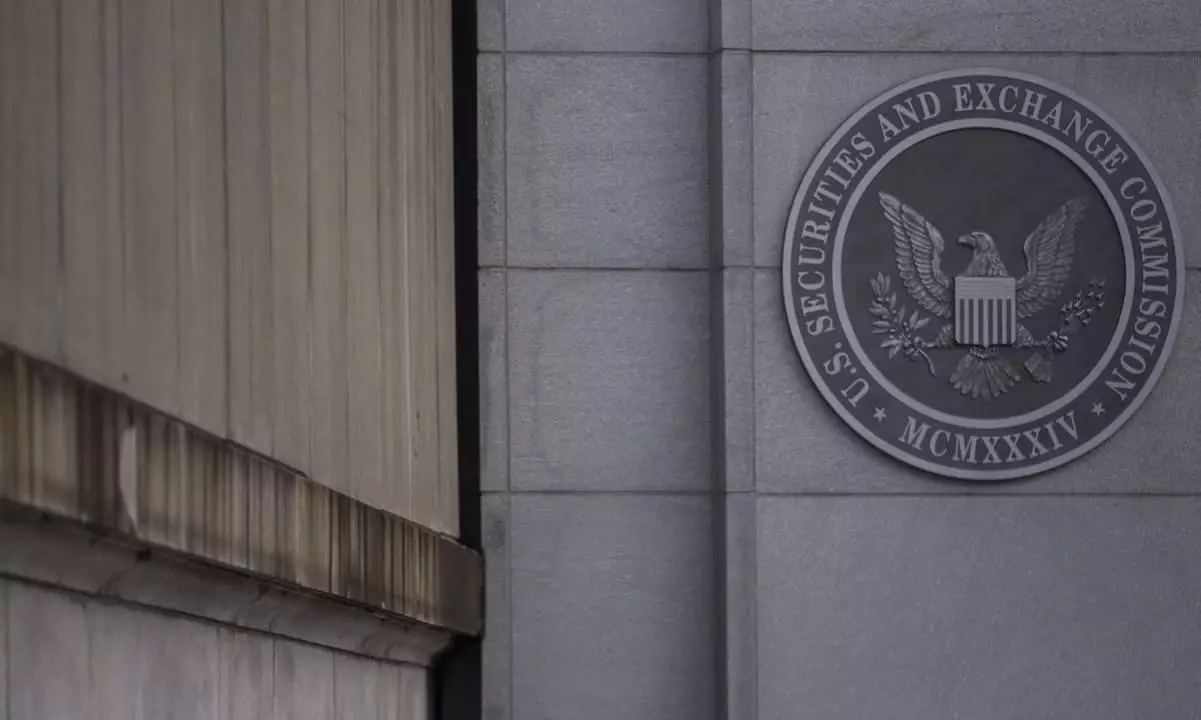The cryptocurrency market has been undergoing significant regulatory changes, particularly in the United States, as authorities strive to create a framework that protects investors while fostering innovation. eToro, a prominent financial services company, is now navigating these turbulent waters. In a recent pronouncement from the Securities and Exchange Commission (SEC), eToro has been directed to curtail trading on its platform, limiting the range of cryptocurrencies available to American investors. This decision marks a critical moment for both eToro and its users, highlighting the ongoing tension between innovation in the digital currency sphere and regulatory compliance.
The SEC’s investigation revealed that eToro has been in violation of federal securities laws since at least 2020, operating without proper registration as a broker and clearing agency. This revelation is alarming, as it illustrates the SEC’s commitment to enforcing regulations to ensure that trading platforms operate transparently and legally. As a result of these findings, eToro has consented to pay a $1.5 million fine and limit its trading options, now only permitting Bitcoin, Bitcoin Cash, and Ether. While this settlement suggests eToro’s willingness to comply with regulations, it underscores the challenges the platform—and the crypto industry at large—face in navigating a nebulous regulatory environment.
For eToro’s users, the impact of this settlement is significant. Customers are granted a mere six months to liquidate various crypto assets that will be delisted from the platform. This abrupt limitation could prove chaotic, as investors scramble to sell their assets or risk having them liquidated without their consent. The potential financial implications of this process raise concerns about the stability and reliability of eToro as a trading platform. Furthermore, the decision to restrict trading options can adversely affect investor sentiment, as eToro’s diverse offerings were previously one of its most appealing features.
eToro’s situation serves as a bellwether for the entire cryptocurrency market, reflecting broader industry trends and regulatory challenges. The SEC’s approach may set a precedent that prompts other exchanges to reconsider their compliance strategies. Just months prior, eToro had already delisted several cryptocurrencies—most notably, Ripple (XRP) and Cardano (ADA)—to mitigate regulatory risks. By aligning with the SEC’s framework, eToro signals to other crypto platforms the importance of adhering to regulatory standards to avoid severe penalties.
The regulatory crackdown is not unique to eToro; it is part of a larger movement to impose order on the burgeoning cryptocurrency ecosystem. The recent lawsuit from the Australian Securities and Investments Commission further emphasizes that eToro is experiencing regulatory scrutiny on multiple fronts. For eToro and similar exchanges, understanding and complying with federal regulations is becoming increasingly critical in maintaining operational viability and safeguarding investor interests.
EToro’s current predicament underscores the urgent need for clearer regulations in the cryptocurrency landscape. As eToro adjusts its business model to align with the SEC’s directives, the broader implications for the crypto trading community remain to be seen. Whether this represents a temporary setback or a strategic pivot towards long-term sustainability is yet to be determined, but one certainty remains: regulatory compliance is now more important than ever in the evolving world of digital assets.

